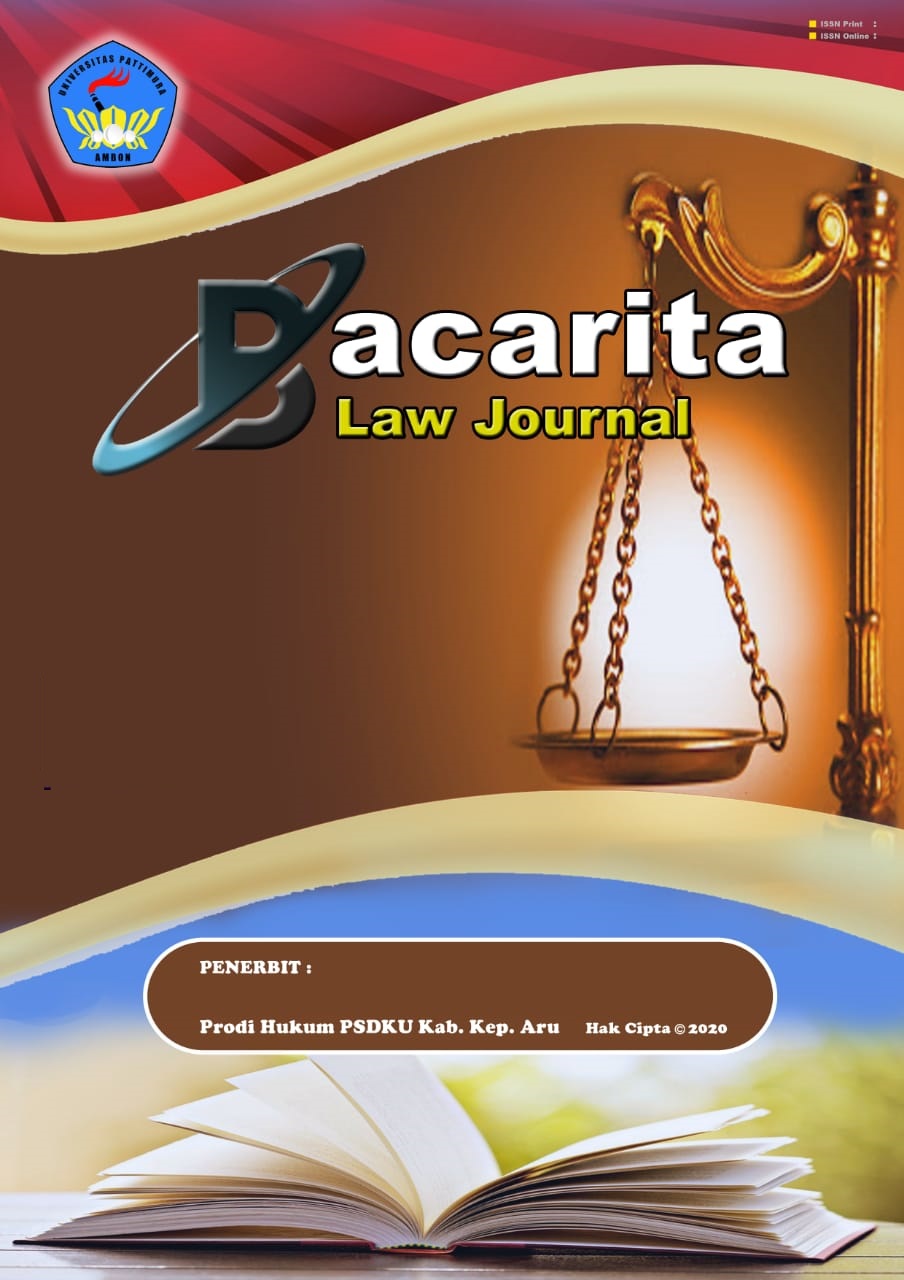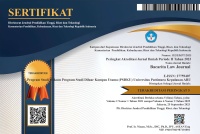Analisis Hukum Pengadaan Tanah Untuk Kepentingan Investasi Pembangunan Rempang Eco-City
Abstract
This study is analyzing the aspect of the land release law for the development of Rempang eco city's With a focus on investment interests. Improved land release for development purposes In Indonesia, especially for investments, often brings legal implications, which cause A conflict between affected governments and communities. The study undermines mechanism Land development in the eco-friendly city of pang and review the ways of compensatio In the liberation of land in the region. By using a qualitative approach, research It USES descriptive analysis to outline the procedural grooves, plus the analysis Qualitative to interpret compensation procedures. An in-depth interview with IC Stakeholders, including pt prospered direly graha, bp batam, and indigenous communities that Affected, as well as participative observations, provide comprehensive insights. Source triangulation Data increases reliability and validity of discovery. These studies contribute to that understanding The complexity of the law surrounding land liberation for investment and offering a foundation For further research in this field.
Downloads
References
Journal
Ayuningmas, N. F., Alfian, A., & Ramadani, N. A. (2023). Resistensi Berbasis Adat: Perlawanan Masyarakat Pulau Rempang, Kota Batam, Kepulauan Riau, Terhadap Rencana Pembangunan Rempang Eco City. Jurnal Inovasi Penelitian, 4(6), 1035-1042.
Chaerudin, M. A. Y. C. (2023). Perlindungan Hak Tinggal Bagi Masyarakat Pulau Rempang Terhadap Penggusuran Proyek Strategis Negara. Jurnal Socia Logica, 3(3), 385-395.
Fath, A., & Fawwaz, R. (2024). Pengadaan Tanah Untuk Kepentingan Umum Di Pulau Rempang Ditinjau Dari Sudut Pandang Hak Asasi Manusia. Forschungsforum Law Journal, 1(01), 31-40.
Habiba, A. N., Melati, A. A., Sa'idah, N. H., & Vimayanti, W. (2023). Actualization Of Human Rights In The Case Of Rempang Island In Indonesia In The Perspective Of Environmental Law. Jurnal Hukum Sehasen.
Kurniawan, E., & Nata, A. D. (2023). Problematika Pembangunan Daerah Kepulauan Dalam Persepktif Keadilan. Jurnal Purnama Berazam, 5(1), 69-76.
Natalia, B. (2024). Perlindungan Hak Terhadap Rencana Penggusuran Tanah Milik Masyarakat Rempang Dalam Pembangunan Eco City Di Indonesia. SYARIAH: Jurnal Ilmu Hukum, 1(2), 185-190.
Parindo, D., Atmaja, A. S., Pasaribu, V., Passaoran, H. A., & Dinanto, D. (2024). Evaluasi Pembangunan Proyek Nasional dan Relokasi Masyarakat Melayu. Jurnal Hukum Indonesia.
Rahman, A. N., & Tjoneng, A. (2023). Hak Pengelolaan Lahan dalam Pembangunan Kawasan Investasi Pulau Rempang Ditinjau dari Hukum Positif Indonesia. UNES Law Review, 6(2), 7612-7623.
Saly, J. N., & Ekalia, E. (2023). Status Perlindungan Hukum Kepada Masyarakat Setempat Terkait Relokasi Pulau Rempang. Jurnal Kewarganegaraan
Valentine, E., Muhamad, M. N., & Hakim, M. I. N. (2024). Konflik Pulau Rempang Dalam Perspektif Teori Kelas Karl Marx. Das Sollen: Jurnal Kajian Kontemporer Hukum Dan Masyarakat.
Walangare, S. G., & Bachri, S. (2023). Kontestasi Kepentingan Pro-Growth Coalition dan Anti-Growth Coalition dalam Konflik Pembangunan Rempang Eco-City Tahun 2023. Madani: Jurnal Politik dan Sosial Kemasyarakatan, 15(02), 381-403.
Copyright (c) 2024 Salsabila Qudsy Ananda, Sadino Sadino

This work is licensed under a Creative Commons Attribution-NonCommercial 4.0 International License.
Authors who publish their manuscripts in this Journal agree to the following conditions:
- The copyright in each article belongs to the author, as well as the right to patent.
- Authors are able to enter into separate, additional contractual arrangements for the non-exclusive distribution of the journal's published version of the work (e.g., post it to an institutional repository or publish it in a book), with an acknowledgment of its initial publication in this journal.
- Authors are permitted and encouraged to post their work online (e.g., in institutional repositories or on their website) prior to and during the submission process, as it can lead to productive exchanges, as well as earlier and greater citation of published work.
- Authors have the right to self-archiving of the article (Author Self-Archiving Policy)















